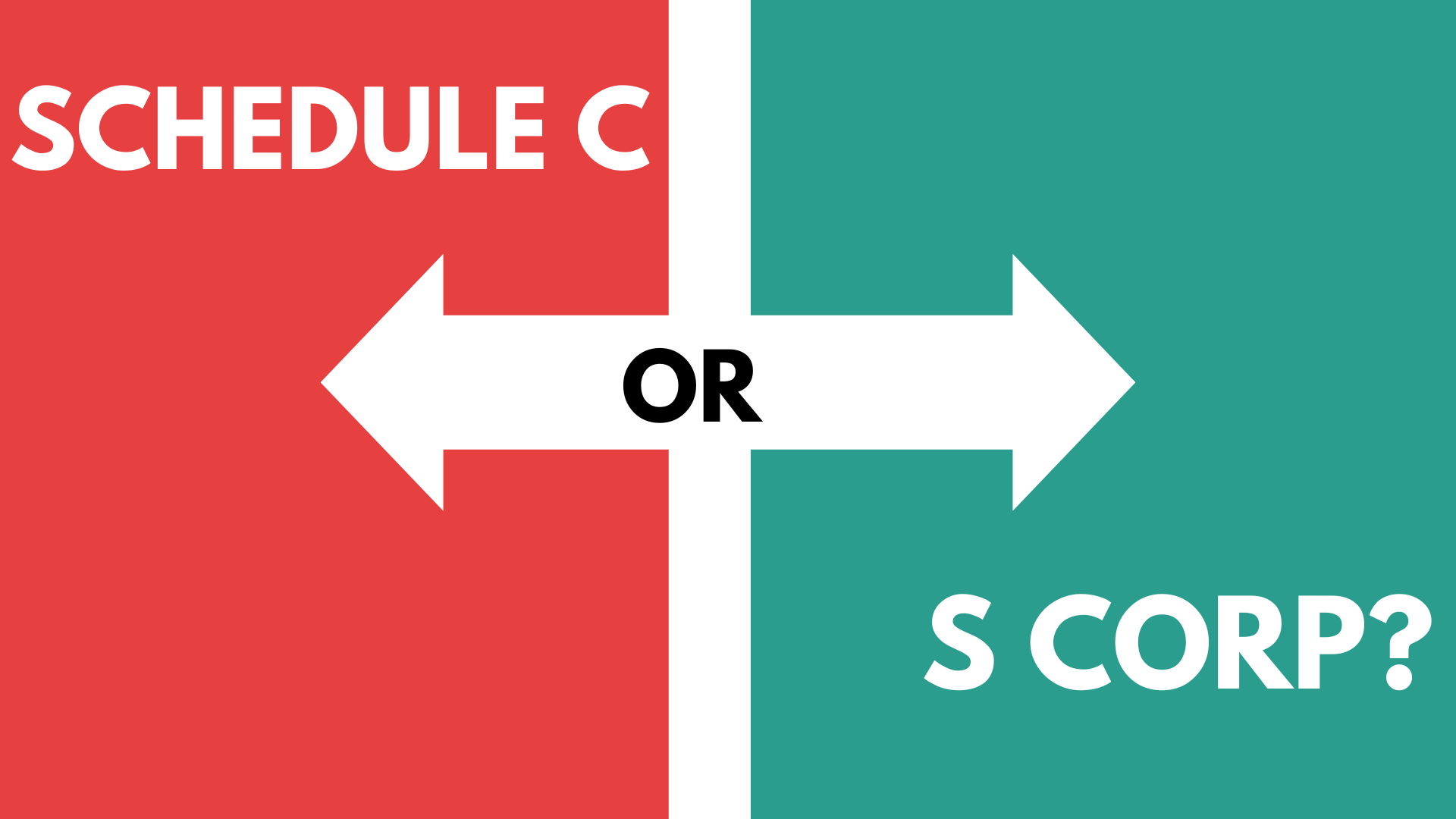Business Tips from NC Business Group
Schedule C to an S Corporation?
Should you switch from a Schedule C to an S Corporation?
If you’re a small business owner filing a Schedule C, you’ve probably wondered:
“Would becoming an S Corporation actually save me money—or just make things complicated?”
Here’s the simple truth: it depends on your income and how you pay yourself.

1. Schedule C vs. S Corp—What’s the Difference?
Schedule C (Sole Proprietor)
- Report income and expenses on your personal return
- Pay 15.3% self-employment tax on all profits
- Super simple, but taxes grow fast as your income rises
S Corporation
- Your business becomes its own entity
- You pay yourself a reasonable salary (subject to payroll taxes)
- Extra profits can be taken as distributions, which aren’t taxed as self-employment income
✅ This structure can save thousands each year when done right
2. How to Know It’s Time
You might be ready to switch if:
- Your net income is $60K+ consistently
- You’re paying too much in self-employment tax
- You want to grow, hire, or look more official to banks or partners
3. Example: Sarah the Consultant
Sarah earns $120,000 a year.
- As a Schedule C, she pays about $18,000 in self-employment tax.
- As an S Corp, she pays herself a $60,000 salary and takes $60,000 in distributions, cutting her tax bill to about $9,000.
💰That’s roughly $9,000 saved every year.
4. Hidden Perks
- Retirement plans: S Corps can open 401(k) or SEP IRAs.
- Lower audit risk: Schedule C filers face higher audit rates.
- Cleaner books & credibility: Payroll, distributions, and filings make growth easier.
5. A Few Things to Know
You’ll have to:
- Run payroll and file payroll tax returns
- File a separate S Corp tax return (Form 1120-S)
- Pay yourself a “reasonable salary” per IRS standards
But with the right advisor, it’s simple and worth it.
Bottom Line
If your business profits are above $60K–$80K, talk to your CPA or CFO advisor.
An S Corp might not make you fancy—just financially smarter.




